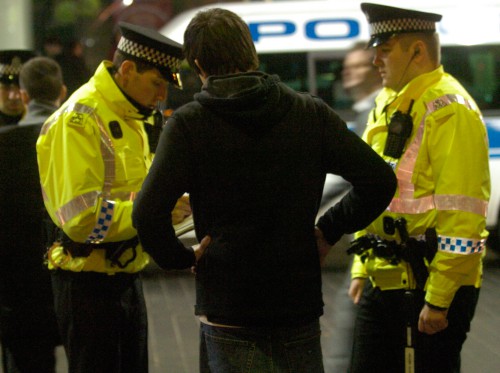
Dr Megan O’Neill, from Dundee, and Edinburgh Napier’s Dr Liz Aston had previously evaluated a new approach to stop and search piloted by the Fife Division of Police Scotland.
Their report, published by the Dundee-based Scottish Institute for Policing Research (SIPR), highlighted elements of the pilot that can be regarded as good practice while also making 19 recommendations for improvement.
One of the key proposals was a cessation of consensual search and a presumption of the use of statutory search powers. The authors suggested these should be targeted in order to end misunderstanding about the purpose of consensual searches and the public’s right to refuse them.
Police Scotland have accepted all the recommendations within the report and these were implemented into policy and practice alongside further recommendations made by other internal and external stakeholders. Police Scotland’s Code of Practice for Stop and Search was introduced in May 2017 through the Criminal Justice (Scotland) Act 2016. Consensual searches are now no longer lawful in Scotland.
“We are absolutely delighted to see Police Scotland respond to our report in this way,” said Dr O’Neill. “When we looked at the pilot it was clear there was a real desire amongst individual officers, Fife Division and Police Scotland in general to make stop and search more effective in serving public safety.
“Many of the elements of the pilot can be regarded as good practice, but we also noted several areas for improvement, particularly around consensual search. Those searched continued to complain about ‘random’ searches during the trial, suggesting that even with the pilot’s methods of making the option to refuse a consensual search explicit and the advice slips provided by officers, confusion remained.
“We therefore recommended that Police Scotland used legislative searches only. Only these can truly be targeted at ‘the right people, right place and right time’ thereby enhancing accountability and public confidence, two key aims of the pilot.”
The Fife Pilot evaluation ran from November 2014 to February 2015. It aimed to improve levels of approval amongst the public by better informing them of the process, the reasons why searches are being carried out, and the rights of the individual. Researchers analysed police data on their use of stop and search in two areas of Fife, and compared that to data from another division of Police Scotland. They also conducted 11 observations of stop and search and interviewed 42 police officers and 13 members of the public.
Elements introduced as part of the pilot included sending letters to the parents of children who have been stopped to make them aware of the event, providing enhanced information leaflets to every person stopped, and increasing opportunities for the public to provide feedback after a search.
The systematic recording of all stop searches, compliance recording checks, engagement with external stakeholders, provision of advice slips and aide memoires, and enhanced staff training were held up as successes in the report, which also found:
More stop and search, even with good practice identified in the pilot, will not stop crime or anti-social behaviour on its own.
While police respondents perceived stop and search to be effective in terms of crime prevention the current evidence base does not support this.
Stop and search should be used as a last resort in contact with the public, especially with young people and vulnerable groups.
The stop and search database should flag up whether the same individuals are being stopped and searched on multiple occasions and alternative interventions used in these instances.
Local knowledge is essential for the success of stop and search.
Increased and improved face-to-face training on stop and search should be provided for officers.
Dr Aston said: “Stop and search is a contentious area of police practice, where human rights must be balanced with safety concerns, yet until doctoral research by Dr Kath Murray in 2014 the practice had received very little attention in Scotland.

“We are delighted that all of our recommendations from the Fife Pilot have been actioned by Police Scotland and our research has resulted in significant changes to the policy and practice of stop and search. We look forward to developing this work further through a European network on Police Stops.”
The SIPR evaluation report has supported Police Scotland in the delivery of improvements in the use of stop and search including enhancements to the stop and search database, improved recording practices and the public reporting of management information, alongside both face to face and online training of officers.
Assistant Chief Constable Higgins of Police Scotland added, “Police Scotland understand the value of external scrutiny and review. Our work with academia and addressing all the SIPR recommendations is evidence of the willingness of our organisation to learn and implement significant changes to both policy and practice based on that learning.
“We recognise that stopping and searching people is a significant intrusion into their personal liberty and privacy and, as such, all stop and search activity must be appropriate in line with the Code of Practice for Stop and Search. We have made real progress improving the use of stop and search and it is important we continue to build on that good work with internal and external review providing proportionate governance and assurance.”